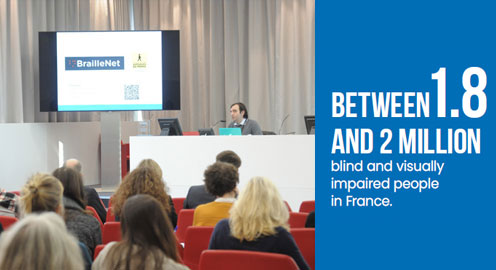
SOPHIE NICOLET
|

|
||||||||
Making our books accessible: an ethical obligationHachette Livre uses digital technologies to make its books accessible to people who have difficulty reading. Since 2018, “natively accessible” digital versions of novels or essays published by a Hachette Livre publishing house in France have been available as soon as they are released, meaning that they can immediately be used by readers with a Braille keyboard or the audio transcription function on a device (smartphone, PC or e-reader). In order to extend this digital book protocol as widely as possible, Hachette Livre – with its subsidiaries Hachette UK and Hachette Book Group – signed up to the Accessible Books Consortium’s Charter for Accessible Publishing in 2019. In addition, initiatives are also emerging within our publishing houses and helping to enhance the range of accessible content. In November 2019, Hachette UK partnered with the Royal National Institute of Blind People (RNIB) to make 33,000 titles from its catalogue accessible via the RNIB Bookshare platform. This free service provides people who are unable to read with a library of schoolbooks designed to be read electronically or adapted to the particular needs of people who are blind, partially sighted or have dyslexia. Lastly, Hachette Romans – which publishes French-language young adult classics and original fiction – signed a partnership agreement with Mobidys to convert around 30 titles from its catalogue into FROG format and thereby make them accessible to dyslexic readers in audio, digital or print version.
|
|||||||||
 Conference on book accessibility for the visually impaired at the Hachette Livre head office, February 2020 (Vanves, France). |
|||||||||